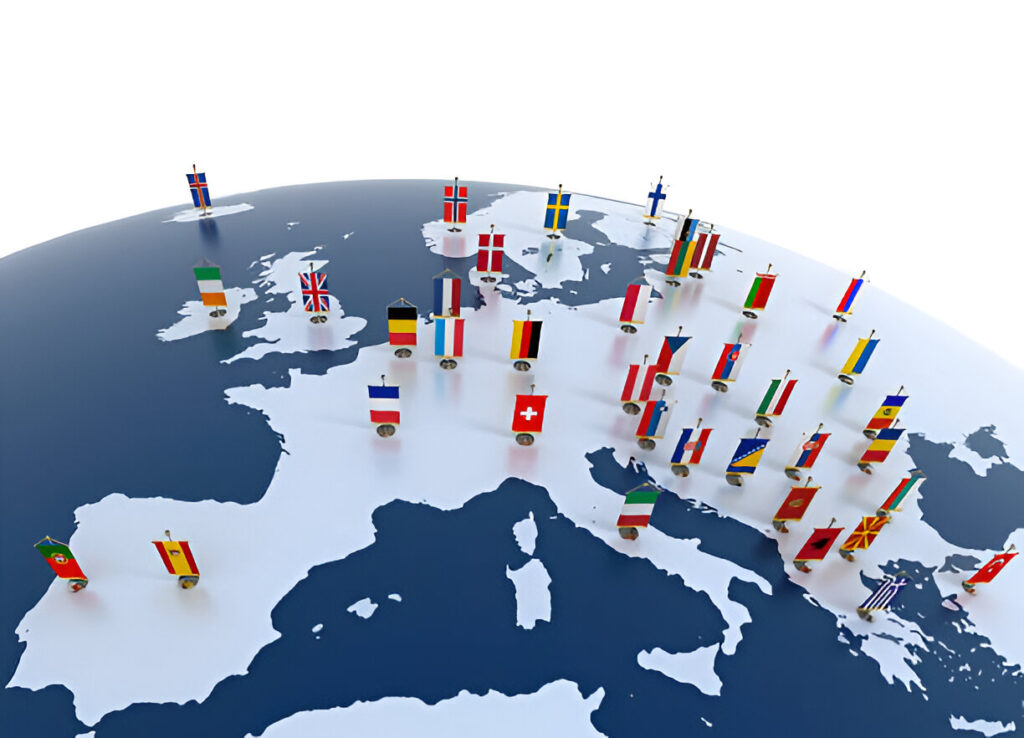Power on the global stage is defined by a combination of economic influence, military strength, diplomatic reach, and cultural impact. Some nations wield significant power due to their military capabilities, while others dominate through economic influence or soft power tactics such as culture and diplomacy. In this article, we’ll explore the most powerful countries in the world, examining the key factors that contribute to their global influence.
United States
Power Factors: Military, Economy, Technology, Diplomacy
GDP: $26.7 trillion (approx.)
Military Spending: $800+ billion annually
The United States has long held the title of the world’s most powerful nation. Its military strength is unparalleled, with a significant global presence through bases and alliances such as NATO. Economically, it leads in GDP and innovation, hosting major tech giants like Apple, Google, and Microsoft. American culture, through Hollywood and global brands, also extends its soft power influence worldwide.
China
Power Factors: Economy, Military, Technology, Manufacturing
GDP: $19 trillion (approx.)
Military Spending: $293 billion annually
China’s rapid economic growth has transformed it into a global superpower. With the world’s largest standing army and significant investments in AI, cybersecurity, and military modernization, China is a formidable force. Its Belt and Road Initiative (BRI) extends its influence in Asia, Africa, and beyond, leveraging economic power for strategic gains.
Russia
Power Factors: Military, Energy, Diplomacy
GDP: $1.7 trillion (approx.)
Military Spending: $65 billion annually
Russia’s power largely stems from its military capabilities and energy resources. It holds the world’s largest nuclear arsenal and remains a significant geopolitical player, especially in Eastern Europe and the Middle East. Energy exports, particularly natural gas to Europe, are also a vital aspect of its influence.
India
Power Factors: Economy, Military, Population, Technology
GDP: $3.5 trillion (approx.)
Military Spending: $76 billion annually
India’s growing economy and large population make it a rising power on the global stage. With a significant IT sector and a rapidly modernizing military, India plays a crucial role in the Indo-Pacific region. Its strategic partnerships with countries like the U.S. and Japan further enhance its influence.
Germany
Power Factors: Economy, Diplomacy, Technology
GDP: $4.3 trillion (approx.)
As the largest economy in Europe, Germany wields substantial economic power. It is a key player in the European Union, shaping policies on trade, immigration, and defense. Known for its engineering and automotive industries, Germany also holds soft power through its leadership in environmental policies and diplomacy.
United Kingdom
Power Factors: Military, Diplomacy, Culture
GDP: $3.2 trillion (approx.)
Military Spending: $68 billion annually
Despite Brexit, the UK remains a global power due to its military capabilities, including a nuclear arsenal and a permanent seat on the UN Security Council. British culture and media, along with its extensive diplomatic network, amplify its influence worldwide.
France
Power Factors: Military, Diplomacy, Culture
GDP: $3 trillion (approx.)
Military Spending: $56 billion annually
France’s influence is rooted in its military power, including a nuclear deterrent, and its leadership role in the European Union. Culturally, French language and cinema extend its soft power, while its diplomatic efforts focus on Africa and the Middle East.
Japan
Power Factors: Economy, Technology, Soft Power
GDP: $5 trillion (approx.)
Japan is an economic powerhouse known for its technological innovations and advanced manufacturing sector. Its soft power is evident through its cultural exports like anime, video games, and cuisine. Despite limited military capabilities, Japan’s strategic alliances, particularly with the U.S., enhance its influence in the Asia-Pacific region.
South Korea
Power Factors: Economy, Technology, Culture
GDP: $1.8 trillion (approx.)
South Korea’s influence extends through its technology sector, with giants like Samsung and LG, and its cultural exports, known as the Korean Wave (Hallyu). Its strategic location and military capabilities, coupled with strong alliances, make it a significant player in East Asia.
Israel
Power Factors: Military, Technology, Intelligence
GDP: $500 billion (approx.)
Despite its small size, Israel wields significant power through its advanced military and intelligence capabilities. Known for cybersecurity and defense technology innovations, Israel’s geopolitical influence is notable in the Middle East.
Honorable Mentions
- Brazil: For its regional influence in Latin America.
- Turkey: For its strategic military position and role in Middle Eastern politics.
- Saudi Arabia: For its control over significant energy resources.
Conclusion
The power of a nation is not determined by a single factor but a combination of military might, economic strength, technological innovation, and cultural influence. The countries listed above exemplify how different forms of power can shape global dynamics. Understanding these factors is essential for comprehending current world affairs and anticipating future shifts in the global power structure.


